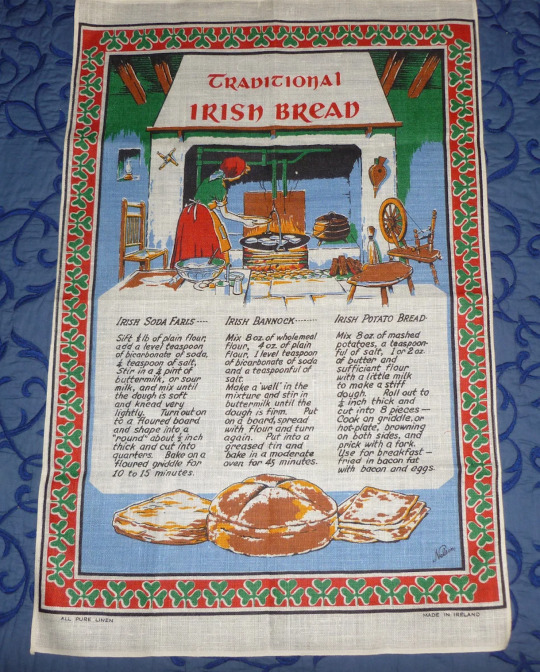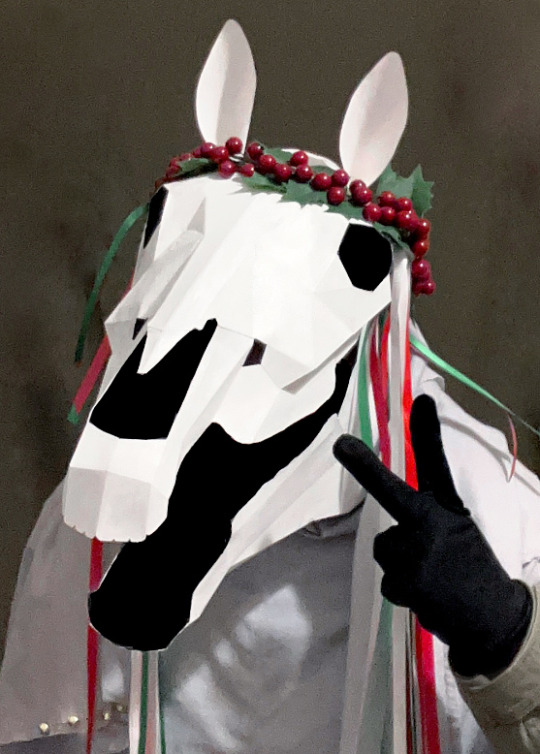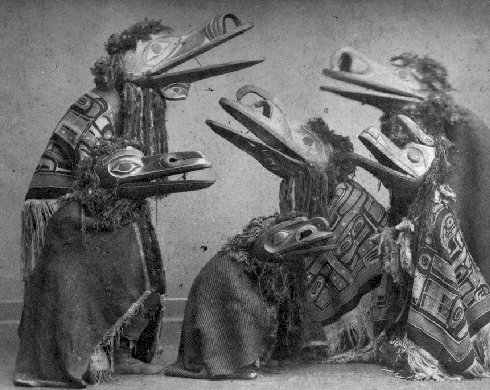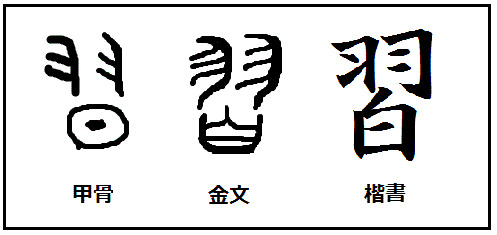#traditional folkways
Explore tagged Tumblr posts
Text
Food for thought
Lord Moyne, speaking to a society which does its best to preserve the existence of the primitive races, had this to say: The imposition of our white civilization upon primitive races undoubtedly leads to their destruction and even extermination. I cannot help feeling rather unhappy at the assumption that our own ways are best. The encouragement of natives to wear European garments has in certain cases caused the loss of health and vigour. Lord Moyne might have added that the European races have long worn too many heavy garments. Why, then, should they impose such clothing on the coloured peoples?
--The Children's Newspaper (England), May 28, 1938
No wonder Peter Potamus holds a certain fascination for the uncharted regions of Polynesia, where nakedness is considered perfectly acceptable and at once comfortable ... and seeks to pass such appreciation on to nephews Patrick and Perry II and nieces Pamela and twins Peggy and Penny.
#hanna barbera#food for thought#headcannons#flashback#insights#primitive peoples#primitive cultures#traditional folkways#effects of civilisation#peter potamus#polynesia uncharted#hannabarberaforever
0 notes
Text

"It's Christmas!"
441 notes
·
View notes
Text

Symbols of the Ancestors from folk embroidery and weaving, Belarus, drawing by M.S. Katsar.
- Image source - MagPie (aka Olga Stanton)
#ancestors alive!#what is remembered lives#memory & spirit of place#ancient ways#sacred ways#folkways#love#life#traditions#past times#symbols#SymbolSpeak#embroidery#weaving#Belarus#M.S. Katsar#drawing#sewing#stitching
172 notes
·
View notes
Photo
Regrettably, there are isolated parts of the wilderness where the Sceptre Detector is unlikely to work reliably, especially where most of the claims about ghosts or suchlike are rooted in local folklore as is likely rooted in latent ignorance and superstition.

#hanna barbera#memes#goober and the ghost chasers#ted's sceptre detector#folklore#local legends#superstitious beliefs#ignorance#traditional folkways#hannabarberaforever
3K notes
·
View notes
Text



13 notes
·
View notes
Text
youtube
Pete Seeger's Rainbow Quest ep 5, 1965 Jean Ritchie playing Shady Grove
#jean ritchie#pete seeger#1960s#1960s music#60s tv shows#60s folk#appalachain folk#appalachia#southern folk#appalachain gothic#folk#american folk#women of folk#traditional folk#folk music#country#classic country#old country#folkways#vintage#pete seegers rainbow quest#Youtube
13 notes
·
View notes
Text
"The last night of the old year was known in Irish as Oíche na Coda Móire -- The Night of the Big Portion -- because of the belief that a big supper on this night ensured full and plenty for the year to come. No food should be taken out of the house on New Year's Eve. On any other night of the year a hungry traveler or homeless waif might expect hospitality as a matter of course, but on this night food and drink were given grudgingly, if at all. It was better not to ask.
This custom went back to the time when the success or failure of the crops meant all the difference between famine and plenty. Spells and incantations were invoked to guard against the danger. It was customary of the woman of the house in many parts of the country to bake a large barm brack on New Year's Eve.
As night approached the man of the house took three bites out of the cake and dashed it against the front door in the name of the Holy Trinity, expressing the pious hope that starvation might be banished from Ireland...
After the ceremony of banishment was over the fragments of the cake were gathered up an eaten by the family. In Imokilly, Co. Cork, they had a custom that the crumbs were thrown at the door and windows to prove that no one inside was hungry.
A rather more pleasing version of this custom from west Limerick is given by Kevin Danaher in The Year in Ireland. The door was struck three times with a large cake while the head of the household recite...
'Happiness in and misfortune out, From tonight to this night twelve months, In the name of the Father and of the Son and of the Holy Spirit, Amen' Church bells ringing, hooters hooting, bonfires burning, people joining hands at midnight and singing 'Auld Lang Syne' -- these are now the customary ways to welcome the New Year..."
- Land of Milk and Honey: The Story of Traditional Irish Food and Drink, by Brid Mahon

#Oíche na Coda Móire#New Year's Eve#Ireland#New Year#the New Year#Irish customs#Irish traditions#Irish history#history#folkways#The Night of the Big Portion#quotes#Land of Milk and Honey: The Story of Traditional Irish Food and Drink#Brid Mahon#recipes#food#vintage illustration
6 notes
·
View notes
Text
“There’s a theory that the British love folk horror because we were the first country to industrialise, so we are most disconnected from our agrarian roots.”
*
“It was my skeleton in the closet that I came from a morris dancing Mecca but, through bonding with the multicultural friends I met in London, I was able to look at my English heritage in a new way. I saw it not as a cul de sac of culture but how it connected to broader customs.”
*
'Though Curry was born in London, both his parents are immigrants. He sees folklore as a way of connecting to the land. “I need to find a way to identify with this place I’m from. It’s also part of a story of environmentalism, the land rights movement and, fundamentally, community. Something Doc feels strongly is that there is no distinction between the Notting Hill Carnival, say, and some intimate local festival you can trace back through the centuries. It’s about people celebrating their here and now.”'
#folklore#british folklore#folkways#folk traditions#folk horror#the observer#the guardian#doc rowe#alice fisher#articles#quotes
27 notes
·
View notes
Photo



(via Winter Magic From Green Hospitality - by John Willmott)
#Yule#John Willmott#Winter Magic From Green Hospitality#Tis The Season#Holly#Ivy#Winter#Solstice#Winter Solstice#symbolism#celebrations#traditions#folkways#Christmas Trees#Ireland#Yuletide#Scotland#England
1 note
·
View note
Video
youtube
The Fowler, Martin Carthy with Dave Swarbrick
#youtube#Martin Carthy#The Fowler#Folk On#Byker Hill#Dave Swarbrick#folkways#retro music loves#traditional music#english folk tunes#english folk music#memory & spirit of place
2 notes
·
View notes
Text
White Americans not realizing they have a culture and an ethnicity (calling only people of color "ethnic," or only minority traditions "cultural") is a lot like cis people denying that they have pronouns!
It's another example of people in the majority thinking of their own demographic as normative (expected, default, the unmarked category). It's so deeply ingrained that it becomes invisible.
'White Americans don't have any culture, they're just [normal/boring/generic/empty]. 'Culture' is when you're quaint and exotic and have interesting ethnic foods and holidays." is such a grating bit of nonsense to have somehow become progressive commonsense in a lot of places.
#culture#race#ethnicity#america#whiteness#traditions#folkways#social issues#gender#pronouns#my thoughts
16K notes
·
View notes
Text
Meanwhile, in a rather interesting part of Polynesia Uncharted such as Peter Potamus can't resist spending time at
A LOCAL CHIEFTAIN, in conversation with the charmer himself: I do have to admit there, uh-- PETER POTAMUS, wearing of as much as explaining himself: The name is Peter Potamus, and I hope you won't wear it out! A LOCAL CHIEFTAIN, continuing the conversation: Oh yes, Peter; I do have to admit that you have quite the fascination about diving in these waters, as much as the company of our women! And I take it you dive quite well, Peter ... PETER POTAMUS: Hippos like me happen to be born that way, Your Grace! And can we dive oh so gracefully, much to the admiration of your locals! A LOCAL CHIEFTAIN: Not to mention such an interest in the worship at our underwater tiki shrine, and what fascinating offering of the life-force such as you bestow in such worship! PETER POTAMUS: Do excuse me when I acknowledge that I can't help but have such feelings in my loins while diving. It can't help but feel so delightful! A LOCAL CHIEFTAIN: I do have to admit that, even with my rank and position, I can't help but show such wonder and fascination while diving ... and neither can my household! PETER POTAMUS: Which, I have to admit, makes such islands as these rather fascinating in their own way and form! And doesn't wearing just yourself underwater actually feel so delightful and tingly all over?! A LOCAL CHIEFTAIN, chuckling at the thought: I'd have to concur ... Uh, how about leading my twin sisters into a dive in awhile? PETER POTAMUS: Rather interesting, now that you suggest it.... [You can picture the rest]
#hanna barbera#vignette#headcannons#peter potamus#polynesia uncharted#polynesian traditions#polynesian folkways#polynesian lore#tiki shrine#diving polynesia#diving naked#beyond the reef#wearing yourself#hannabarberaforever
0 notes
Text

Happy Krampusnacht, kids! Hope you've all been good!
#mari lwyd#costume#marilwyd#traditions#peace out#horse skull#folklore#folkways#holidays#winter#weird for the sake of being weird#krampusnacht#gruss vom mari#i am not horning in on his racket
22 notes
·
View notes
Text

Nuxálk masked dancers - 1886
#Nuxálk#masked dancers#1886#folkways#Ancestors Alive!#What is Remembered Lives#Memory & Spirit of Place#masks#dancers#traditions#ancient ways#indigenous#indigenous histories
53 notes
·
View notes
Link
Good episode of a podcast about the Mari Lwyd.
Did I finally get off my ass and finish an episode? Yes! And @benito_cereno was very patient with me. Better image to come, but podcasts aren’t about the album covers. :)
23 notes
·
View notes
Text
習
音読み シュウ
訓読み なら(う)
意味 learn
The kanji 習 is often associated with learning or with customs.

習う ならう to take lessons in; to be taught; to learn (from a teacher); to study (under a teacher); to get training in
Words ending with ~習
悪習 あくしゅう bad habit; bad custom; evil practice; vice
因習 いんしゅう convention; tired tradition; old custom (negative nuance)
演習 えんしゅう practice; exercise; drill; military exercise; seminar
慣習 かんしゅう custom; convention; common practice; becoming accustomed (to)
学習 がくしゅう study; learning; tutorial
教習 きょうしゅう training; instruction
講習 こうしゅう short course; training
実習 じっしゅう practice (in the field); training (esp. practical and hands-on); practical exercise; drill
常習 じょうしゅう custom; common practice; habit
自習 じしゅう self-study; teaching oneself; studying by oneself (at school) while the teacher is absent
独習 どくしゅう self-study; self-teaching
風習 ふうしゅう custom
復習 ふくしゅう review (of learned material); revision
補習 ほしゅう supplementary lessons
予習 よしゅう preparation for a lesson
練習 れんしゅう practice; training; drill; (an) exercise; workout
Words beginning with 習~
習慣 しゅうかん habit; (social) custom; practice; convention
習合 しゅうごう syncretism (the amalgamation of different religions, cultures, or schools of thought)
習得 しゅうとく learning; acquisition (of a skill, knowledge, etc.)
習作 しゅうさく (a) study (e.g. in music, art, sculpture, etc.); etude; practice piece
習性 しゅうせい habit; behavior; trait; nature
習字 しゅうじ penmanship; calligraphy
習熟 しゅうじゅく proficiency; mastery; becoming proficient (in)
習俗 しゅうぞく manners and customs; folkways; usage
#日本語#japanese#japanese language#japanese langblr#japanese studyblr#langblr#studyblr#語彙#単語#japanese vocabulary#漢字#kanji#tokidokitokyo#tdtstudy
63 notes
·
View notes